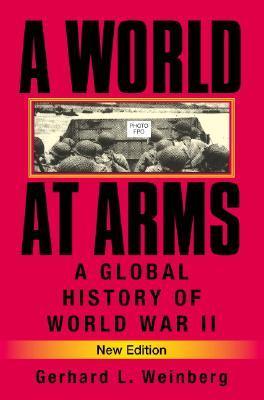
The Second World War
Book Description
A world on the brink, battles raging across continents, and fate hanging by a thread—Winston S. Churchill’s 'The Second World War' is a monumental chronicle of mankind's darkest hour. With vivid accounts of strategy, heroism, and relentless conflict, this gripping narrative pulls readers into the heart of historical upheaval. Experience the tension of decisions made in smoke-filled rooms, the raw emotion of sacrifices on the frontlines, and the unwavering resolve that defined an era. As alliances shift and destinies collide, one question looms: Can courage and unity prevail against the shadows of tyranny?
Quick Book Summary
Winston S. Churchill's "The Second World War" is a sweeping, firsthand account of the profound global conflict that shaped the modern world. Drawing on his unique vantage point as Prime Minister of Britain, Churchill blends detailed military strategy, diplomatic maneuvering, and personal insights to trace the origins, evolution, and resolution of World War II. The work not only analyzes pivotal battles and political alliances but also delves into the moral questions and human costs of war. Churchill’s narrative emphasizes both the gravity of leadership under crisis and the importance of unity among nations in confronting tyranny. Through exhaustive research and vivid storytelling, the book stands as both memoir and historical chronicle—a vital testimony to courage, sacrifice, and the enduring fight for freedom.
Summary of Key Ideas
Table of Contents
The Rise of Aggression and the Road to War
Churchill opens his account by investigating the geopolitical climate leading up to World War II. He details the failures of appeasement, the ambitions of Axis powers, and the gradual erosion of peace in Europe. Through diplomatic cables, speeches, and personal recollections, Churchill illustrates how the world community grappled with escalating threats from Germany, Italy, and Japan. This section sets the stage for the cataclysm to come, establishing the themes of missed opportunities and the high stakes of indecision.
Leadership in Times of Crisis
As war erupts, Churchill scrutinizes the unique pressures and burdens placed on leaders. He provides a behind-the-scenes look at decision-making amidst uncertainty, resource shortages, and public anxiety. The text vividly recounts crucial moments: the evacuation at Dunkirk, the Battle of Britain, and the bombing of London. Churchill’s own experiences as Prime Minister shine through, revealing the delicate balance between personal conviction and collective responsibility. He draws attention to the resilience required to inspire both military personnel and civilian populations.
Alliances and Global Strategy
A central motif of the book is the complex web of alliances that shaped the conflict’s trajectory. Churchill dissects relationships among the Allies—Britain, the Soviet Union, and the United States—revealing tensions, strategic disagreements, and eventual unity. He discusses coordination efforts like the North African campaign and the D-Day invasion, highlighting the monumental logistics and diplomacy behind global cooperation. Trust and communication, he argues, were just as vital as tanks and planes in determining the outcome.
The Cost of War—Moral and Human
Churchill does not shy away from the immense costs of the conflict. He documents the devastation wrought on cities and populations, reflecting on the suffering of soldiers and civilians. The narrative grapples with moral complexities, including the ethics of strategic bombing and the horror of the Holocaust. Through personal anecdotes and official records, Churchill conveys the profound human toll, reminding readers that war leaves scars on nations and souls alike.
Legacy and Lessons for Humanity
Concluding his chronicle, Churchill explores the aftermath and enduring lessons of World War II. He warns against complacency in confronting future threats, advocating for continued vigilance and international cooperation. The legacy of the war, as he sees it, lies in the demonstrated resolve of free peoples to resist oppression. Churchill reflects on the significance of unity, shared values, and the ongoing quest for peace—lessons that remain urgent and relevant decades after the guns fell silent.
Download This Summary
Get a free PDF of this summary instantly — no email required.





